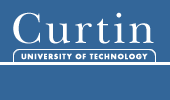142006 v.3 Graduate Diploma in Counselling (Human Services)
GradDipCounsHumServ(Curtin)
Introduction
The Graduate Diploma in Counselling (Human Services) is a practice - oriented and experiential professional course primarily intended for people who wish to enhance their present counselling practice or commence counselling in future employment. It covers basic theories and practices of selected counselling approaches, aspects of human communication; ways to work with individuals, couples, families, groups and communities; and the application of different counselling processes to specific concerns. Specialised knowledge in working with individuals, couples, families, groups and communities is offered. Personal awareness and supervision contribute to a critically reflective practice. Students will be required to attend two weekend workshops to explore individual beliefs and attitudes that may contribute to, or take away from, effective practice. Further, students will read, reflect upon, and practise contemporary approaches informed by feminist critique, social constructionism, post modernism, and post structuralism, which emphasise socio-political contexts. An option unit is offered allowing students to concentrate on a particular area of interest.
Course Entry Requirements/Prerequisites
A three or four year Bachelor's degree in behavioural or social sciences or equivalent. Or Applicants without a tertiary degree or equivalent may be considered on an individual extension basis. A minimum of five years documented relevant work experience and applicants must meet the requirements for tertiary entrance. For Australian students see the Special Tertiary Admissions Test at http://www.tisc.edu.au/tisc.jsp. For international students see http://international.curtin.edu.au/offer of a place.htm#ENGLISH. Those applicants who wish to articulate to the Graduate Diploma level will need to achieve a Course Weighted Average of at least 70 per cent. All applicants will need to - Complete the Curtin Application for Admission and Enrolment Form. Provide a Curriculum Vitae including relevant work experience. Ask two referees to complete the School's Referee's Report form. Provide a certified copy of previous tertiary, or other relevant, qualifications (if applicable). Write a statement regarding why you wish to enrol in the course (not more than 500 words). Attend an interview.
Recognition of Prior Learning
Applications for recognition of prior learning (advanced standing) are encouraged from applicants and are assessed on an individual basis. Not more than two units will be exempted, and no exemptions will be granted for work experience alone.
Duration and Availability
This fee paying course is one year full-time or part-time equivalent part-time study. Some optional units may be available through external study.
Intermediate Awards
In expectional circumstancees a student who has successfuly completed all the requirements for the Graduate Certificate in Counselling (Human Services) may apply for graduation with that award subject to approval by the Head of Department. For further definition refer to the Statement and Awards section under the General Information section in the Curtin Courses Handbook.
Course Organisation
Consisting of eight units, the course is delivered in a variety of modes including late afternoon and early evening on-campus lectures, weekend workshops and optional week intensives. The Department endeavors to alternate times of on-campus lectures for the convenience of students. Videos, discussions, lectures, practical exercises, role-plays, and client stories contribute to a varied and engaging learning atmosphere.
Career Opportunities
Graduates may find their employment opportunities enhanced within government and non government agencies that deliver counselling services.
Additional Course Expenses
Students may be expected to purchase a number of textbooks, readers and other vital study materials. In addition, students may also need to contribute some of the cost of consumables, which varies depending on the area of study.
Course Structure |
Hrs/Wk |
Credit |
Year 1 Semester 1 |
|
|
| 307447 |
v.1 |
|
Working with Groups as Communities 513 |
2.0 |
25.0 |
| 307448 |
v.1 |
|
Counselling Applications and Ethics 521 |
2.0 |
25.0 |
| 307449 |
v.1 |
|
Counselling Theory and Practice (1) 512 |
2.0 |
25.0 |
| 307450 |
v.1 |
|
Communication Skills and Self Awareness 511 |
2.0 |
25.0 |
| |
100.0 |
Year 1 Semester 2 |
|
|
| 13297 |
v.2 |
|
Couple and Family Counselling 514 |
3.0 |
25.0 |
| 13299 |
v.2 |
|
Counselling Theory and Practice (2) 522 |
3.0 |
25.0 |
| 308143 |
v.1 |
|
Supervision and Self Awareness 524 |
3.0 |
25.0 |
| |
|
|
OR |
|
|
| 7819 |
v.4 |
|
Professional Supervision 501 |
3.0 |
25.0 |
| 308343 |
v.1 |
# |
Counselling Option (1) 591 |
3.0 |
25.0 |
| |
100.0 |
| # |
Subsequent to course change approval, this unit will be replaced with more specific options prior to 2004. |
| NB |
Students must select electives in consultation with the Course Coordinator. |
| |
|
|
|
|
|
AvailabilityAvailability Information has not been provided by the respective School or Area. Prospective/current students should contact the School or Area listed above for further information.
Click here for a printable version of this page
|

